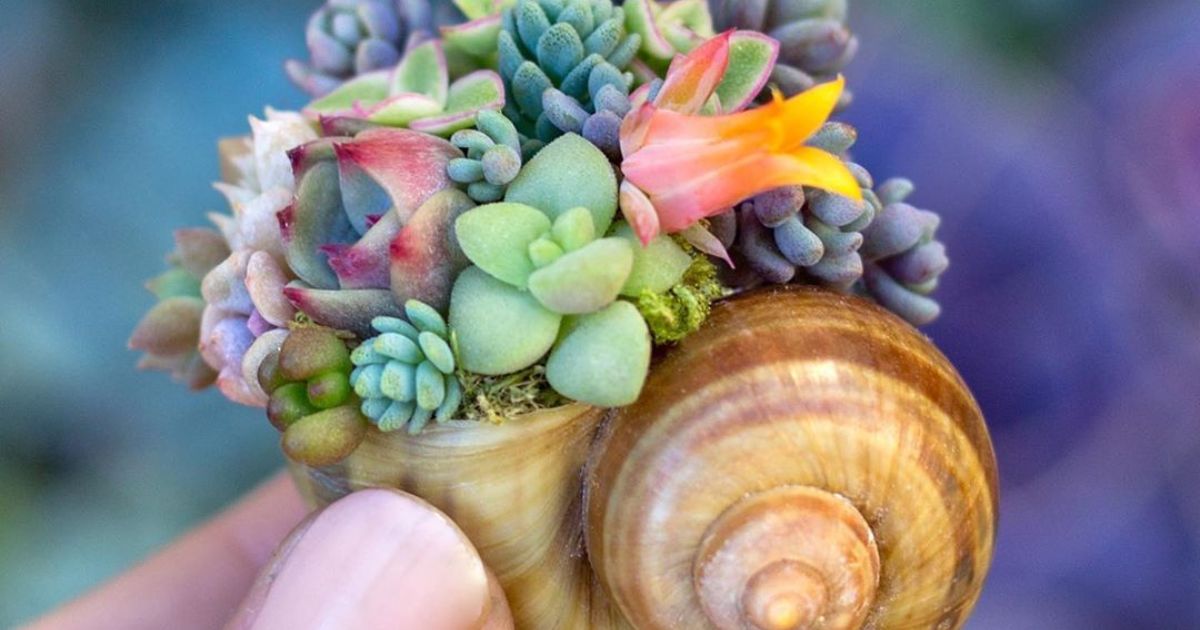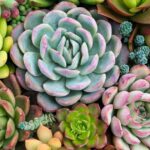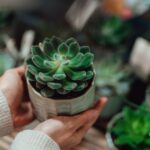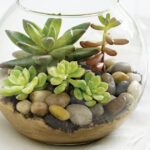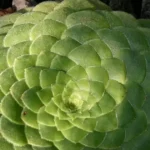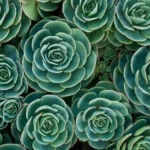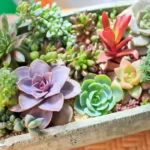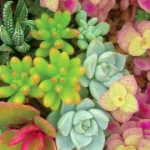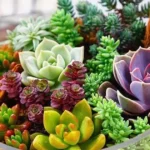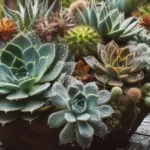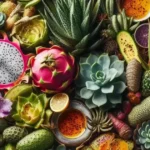Succulents are generally not poisonous to babies. These resilient plants store water in their fleshy leaves and stems, but most species are non-toxic. It’s essential to keep an eye on small children to prevent choking hazards, as succulent parts can be a choking risk if ingested. While not toxic, it’s wise to place succulents out of reach to ensure a safe environment for curious little ones.
Discover the secret to worry-free indoor gardening: Are succulents poisonous to babies? Unveil the truth about these trendy plants and ensure a safe haven for your little ones. Click now to explore the fascinating world of baby-friendly succulents and create a lush, toxin-free environment for your home.
Succulents are generally non-poisonous to babies, making them safe for households with little ones. While these plants store water in their leaves and stems, most species pose no harm if accidentally touched or ingested. To ensure safety, always supervise and keep succulents out of reach to prevent any potential choking hazards.
Are Succulents Poisonous & Which Ones?
Succulents are generally non-poisonous, making them a popular choice for households. Most varieties, like echeverias, sedums, and haworthias, are safe around children and pets. However, it’s crucial to be cautious with certain types, such as the Kalanchoe genus, as they may contain compounds that could cause mild toxicity if ingested. Additionally, if you’re wondering about the longevity of succulents, you might ask, Are succulents annuals or perennials.
To ensure a safe environment, it’s advisable to identify specific poisonous succulents and keep them out of reach. Educating oneself about the potential risks associated with certain species ensures that these charming plants can be enjoyed responsibly in homes with children or curious pets.
Are Succulents Poisonous To Humans?
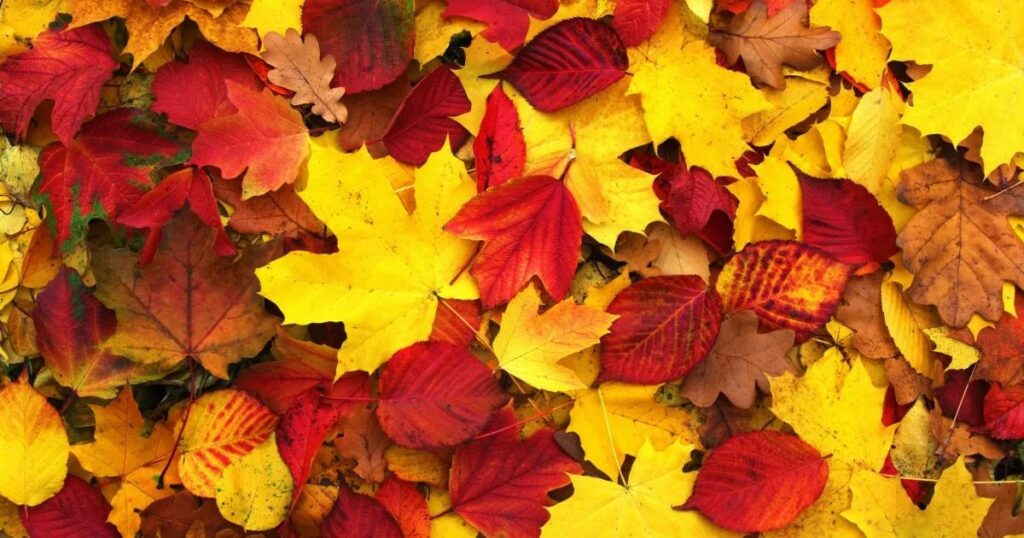
Succulents are generally non-toxic to humans, making them a popular choice for indoor and outdoor decorations. While some people may experience mild irritation if they come into contact with the sap or skin of certain succulent varieties, the effects are typically minor and not considered harmful.
It’s essential to be aware that individual reactions can vary, and some people may be more sensitive to certain succulent species. It’s advisable to exercise caution, especially if you have allergies or skin sensitivities, and to wash your hands thoroughly after handling succulents to avoid any potential irritation.
Are Succulents Poisonous To Cats?
Succulents are often considered non-toxic to cats, but it’s crucial to be cautious. While many varieties like echeveria and hens-and-chicks are generally safe, certain succulents, such as aloe vera, can be mildly toxic to felines. It’s wise to research specific succulent types and consult with a vet to ensure a cat-friendly environment.
If you’re a cat owner and want to enjoy succulents, consider placing them in areas that are difficult for your cat to access. Additionally, monitor your cat’s behavior around these plants and seek immediate veterinary attention if you notice any signs of distress, such as vomiting or lethargy, to ensure the well-being of your furry friend.
Are Succulents Poisonous To Dogs?
Succulents are generally considered non-toxic to dogs, but some varieties may cause mild gastrointestinal upset if ingested. It’s crucial to be aware of the specific types of succulents you have, as certain species can be harmful to pets. While many succulents are safe, it’s advisable to place them in areas that are not easily accessible to dogs to prevent any unintentional snacking.
To ensure your dog’s well-being, familiarize yourself with the succulents in your home and opt for pet-safe varieties. If you suspect your dog has ingested a potentially toxic succulent or is showing signs of discomfort, consult your veterinarian promptly for appropriate guidance and care.
Succulents That Are Poisonous To Dogs And Cats
While many succulents are safe for pets, some can be harmful to dogs and cats. Examples include jade plants (Crassula ovata), which contain compounds toxic to pets and can cause vomiting and lethargy if ingested. Similarly, the popular Euphorbia family, including the Crown of Thorns (Euphorbia milii), can cause mild to severe reactions in pets, such as gastrointestinal upset.
It’s crucial for pet owners to identify toxic succulents and either keep them out of reach or opt for pet-friendly alternatives. Consider safe options like Haworthia, Spider Plant (Chlorophytum comosum), or Echeveria, which add greenery to your space without posing a threat to your furry friends. Always prioritize the well-being of your pets when choosing plants for your home.
Are Succulents Poisonous To Dogs Or Cats?
Succulents are generally non-toxic to dogs and cats, but it’s essential to be cautious as some varieties can cause mild gastrointestinal upset if ingested. Common succulents like echeverias and haworthias are usually safe, but it’s crucial to identify specific species to ensure pet safety.
While many succulents are harmless, it’s crucial to be aware that certain varieties may have sharp spines or thorns, posing a physical risk to pets. Keep an eye on your furry friends to avoid injuries and consider selecting pet-friendly succulents for your home, ensuring a harmonious coexistence between your plants and beloved companions.
| Key Points | Description |
| Succulents Safety | Generally non-poisonous to babies, making them safe for households with little ones. |
| Choking Hazards | While non-toxic, precautionary measures like placing succulents out of reach are crucial to avoid potential choking hazards. |
| Responsible Supervision | Regular supervision and educating children contribute to a secure environment around succulents. |
| Beyond Succulents | Awareness about the toxicity of other house plants is important to ensure a safe and harmonious living space. |
| Enjoyable, Safe Environment | With informed choices and responsible practices, households can strike a balance, enjoying the beauty of succulents safely. |
Are Succulents Poisonous To Cats?
Succulents are generally considered safe for cats, but it’s crucial to choose non-toxic varieties. While most succulents won’t harm feline friends if nibbled on, some may cause mild gastrointestinal upset. Opt for cat-friendly succulents like Echeveria,or Spider Plant to enjoy a green oasis at home without posing any risk to your curious feline companions.
Keep in mind that even non-toxic succulents can present a potential choking hazard, so it’s advisable to place them in areas that are less accessible to your cats. Additionally, monitor your pets for any unusual behavior or signs of discomfort if they do come into contact with succulents, and consult with a veterinarian if you have any concerns about your cat’s well-being.
Succulent Poisoning In Cats Symptoms
Succulent poisoning in cats can manifest through various symptoms. Signs may include vomiting, lethargy, and diarrhea. Some succulents, like those from the Euphorbia family, can release a milky sap that irritates a cat’s mouth and stomach, leading to these distressing symptoms.
If you suspect succulent poisoning in your cat, it’s crucial to seek veterinary attention promptly. Immediate care can help address symptoms and prevent further complications. Keep your feline friend safe by identifying and removing toxic succulents from your home, ensuring a secure environment for your curious and playful companion.
Don’t Overlook These Other Poisonous Houseplants
It’s crucial to be aware of potential hazards in our homes, and not only focus on succulents. Many common houseplants can be poisonous to both humans and pets. Plants like philodendrons, dieffenbachia, and pothos contain toxins that may cause harm if ingested, emphasizing the importance of researching the safety of indoor plants.
While greenery enhances our living spaces, it’s essential to educate ourselves about the toxicity levels of various houseplants. Some may cause mild irritation, while others can be more severe. Take the time to familiarize yourself with the potential risks posed by different plants, ensuring a safe and enjoyable environment for everyone in your home.
FAQ’s
Are all houseplants safe for homes with children?
Not necessarily. Some common houseplants, like philodendrons and pothos, can be toxic if ingested.
Which indoor plants are known to be poisonous to pets?
Plants such as lilies, aloe vera, and jade plants can pose risks to pets if consumed.
How can I ensure a safe environment with houseplants and children?
Research the toxicity of your plants, keep toxic ones out of reach, and educate children about not touching or ingesting them.
Are there symptoms to look out for if someone, including a pet, ingests a poisonous plant?
Yes, symptoms may include nausea, vomiting, and in severe cases, difficulty breathing. Seek medical or veterinary attention promptly.
Can I still have houseplants if I have children or pets?
Absolutely, but choose non-toxic varieties and take precautions to keep them safely out of reach or use pet-friendly barriers.
Conclusion
In conclusion, the safety of succulents around babies is reassuring for plant-loving households. These resilient plants, known for their water-retaining leaves, are generally non-poisonous. While they add a touch of greenery to indoor spaces, it’s essential to remain vigilant and implement basic safety measures. Ensuring succulents are placed out of a baby’s reach minimizes any potential risks, particularly considering the choking hazard of succulent parts.
Parents and caregivers can enjoy the aesthetic benefits of succulents without compromising the safety of their little ones. Regular supervision and educating children about not touching or ingesting plants contribute to a secure environment. It’s crucial to broaden our awareness beyond succulents, as some houseplants can be harmful. Conducting research on the toxicity levels of various indoor plants and implementing precautionary measures can help create a harmonious coexistence between greenery and the well-being of children.
